Mike Bartlett: ‘Meeting Weinstein was like an audience with a monarch – it was horrific’
The 'Doctor Foster' and 'King Charles III' writer talks to Charlotte Cripps about the mogul’s plans to cast Al Pacino as Prince Charles, millennials, his new play, 'Snowflake', and new ITV drama 'Sticks and Stones'

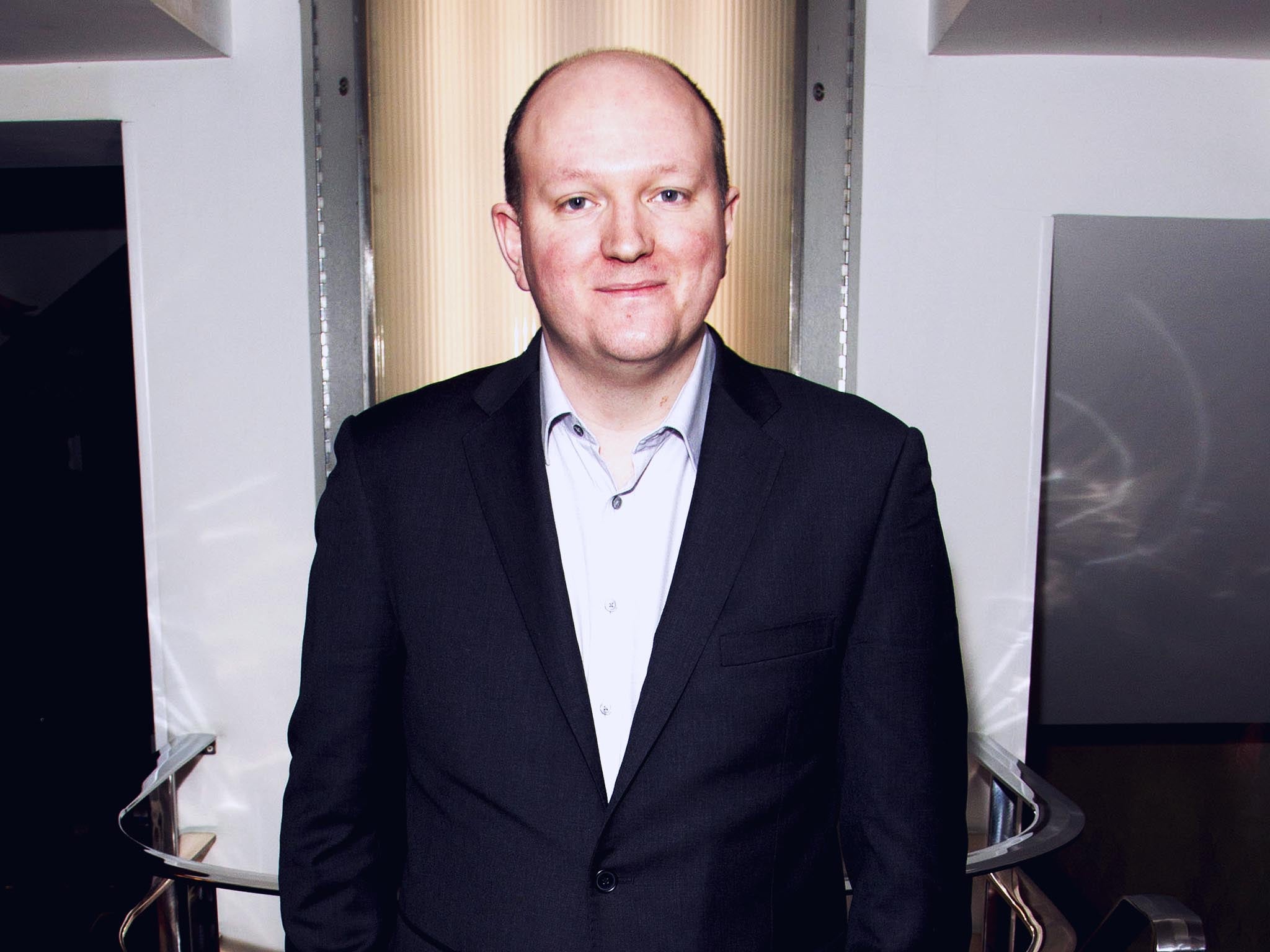
Your support helps us to tell the story
From reproductive rights to climate change to Big Tech, The Independent is on the ground when the story is developing. Whether it's investigating the financials of Elon Musk's pro-Trump PAC or producing our latest documentary, 'The A Word', which shines a light on the American women fighting for reproductive rights, we know how important it is to parse out the facts from the messaging.
At such a critical moment in US history, we need reporters on the ground. Your donation allows us to keep sending journalists to speak to both sides of the story.
The Independent is trusted by Americans across the entire political spectrum. And unlike many other quality news outlets, we choose not to lock Americans out of our reporting and analysis with paywalls. We believe quality journalism should be available to everyone, paid for by those who can afford it.
Your support makes all the difference.It’s hard to follow up a hit TV drama. Mike Bartlett’s fast-paced thriller Doctor Foster gripped the nation in 2015, with around 9.5 million viewers for the first BBC1 series. It was a runaway hit, with an all pervasive sense of paranoia and a wonderfully skittish Bafta-winning performance from Suranne Jones, as the revenge-seeking GP who suspects her husband of having an affair. And as Bartlett delved successfully into the uglier side of humanity, the show continued to pull no punches for the second series in 2017. Although reviews were more mixed, it still had the compulsive quality of guilty-pleasure TV.
Yet everything else he’s done since hasn’t hit quite the same notes: the ITV medical thriller Trauma, in 2018, starring John Simm, was a middling portrayal of parental grief, while Press, also in 2018, about the fourth estate, rapidly descended into farce, a hackneyed script elevated only slightly by Ben Chaplin’s entertainingly waspish tabloid editor.
Bartlett, who is sitting in an office at ITV’s London headquarters, hadn’t expected Doctor Foster to be a success. “There are no dead bodies and there are no aliens – and so we were completely taken aback by it,” he recalls, looking remarkably unflustered, having arrived an hour late, due to delays on his commute from Oxfordshire. There is something surprisingly unassuming about him. Dressed in a plain suit with his coat thrown over his knees, he looks more like a bank manager than a writer with a knack for daring psychological dramas and razor-sharp state-of-the-nation plays. Bartlett caused a stir with 2010’s Earthquakes in London – about climate change – and his 2014 future history play, King Charles III, about the death of the Queen and the succession of Prince Charles.
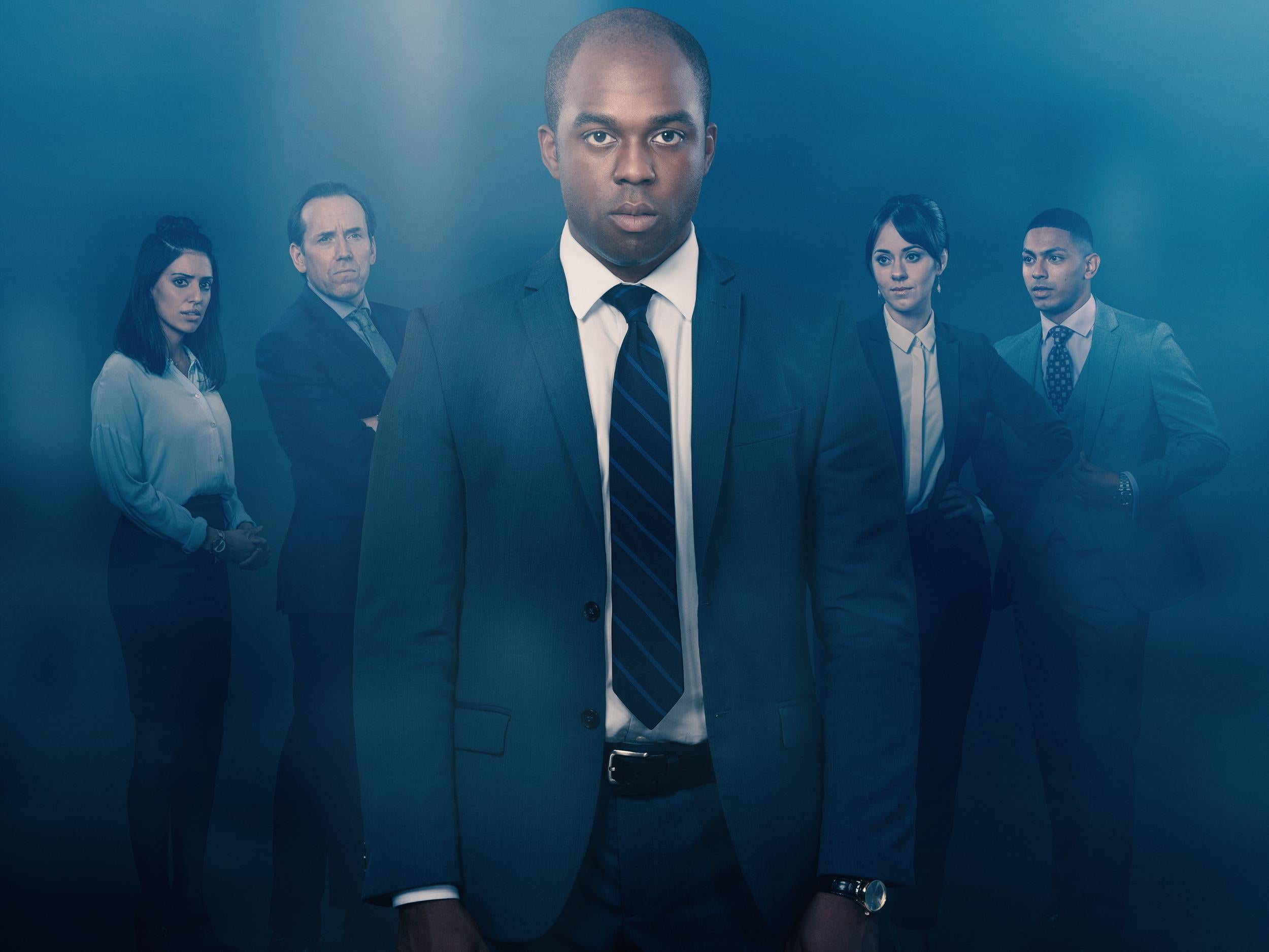
He’s here to talk about two new projects. Sticks and Stones is a new three-part thriller about office politics and bullying in the workplace. It’s a subject he first dealt with in his powerful and sickening play Bull at the Young Vic in 2015 – in which the audience were packed around a boxing ring. And his seasonal play Snowflake, about a generational clash, which is making its London debut this month at the Kiln Theatre (formerly the Tricycle), has been dubbed “Brexit’s A Christmas Carol”.
“Yes, it’s a bit about millennials and it’s at Christmas. I like a pun,” says Bartlett, in a slightly monotone voice. The play premiered to great acclaim last year at the Old Fire Station in Oxford.
Snowflake pits a dad, Andy, who is stuck in the past and estranged from his 21-year-old daughter, Mia, against another twentysomething woman, Natalie, who challenges his political and social values, just as he is preparing for Christmas in a village hall.
What does Bartlett make of the term “snowflake”? “I don’t agree with the implication that the younger generation are in some way extra vulnerable or sensitive. That is the opposite of what I have encountered. I’ve seen a commitment to values and movements of change that is far beyond where I feel my generation was when we were in our early twenties. That doesn’t feel snowflaky or melty or fragile – that feels exciting and fantastic,” he says. “But each generation challenges the one before it – it’s not unusual.” Bartlett does have children himself but doesn’t want to say how many or how old they are. They are not part of the “snowflake” generation, he admits – “Mine are a bit young” – but he makes the point that they’ve shown him how generations can learn from one another: “I think the nature of parents and children is half teaching and half being taught.”
Technically, Bartlett, who was born in 1980, is a millennial. “I’ve experienced the generational clash not just with my parents, but people who are 15 years younger than me, in their early twenties. I make a reference to the Eighties and they look at me like I am the oldest person they have ever met in their life,” he says. “But I’ve been on the other side. It’s like finally all these principles and beliefs and progressive things I have believed since university are happening. I have all sorts of thoughts and criticisms – but I feed them into plays and TV.”
Snowflake is directed by his wife Clare Lizzimore. They first worked together on Bull, when they were newly married. “What if we had got married and found that we hated working together?” Bartlett imagines nervously. But luckily it paid off for the husband-wife team, with the play winning an Olivier Award in 2015.
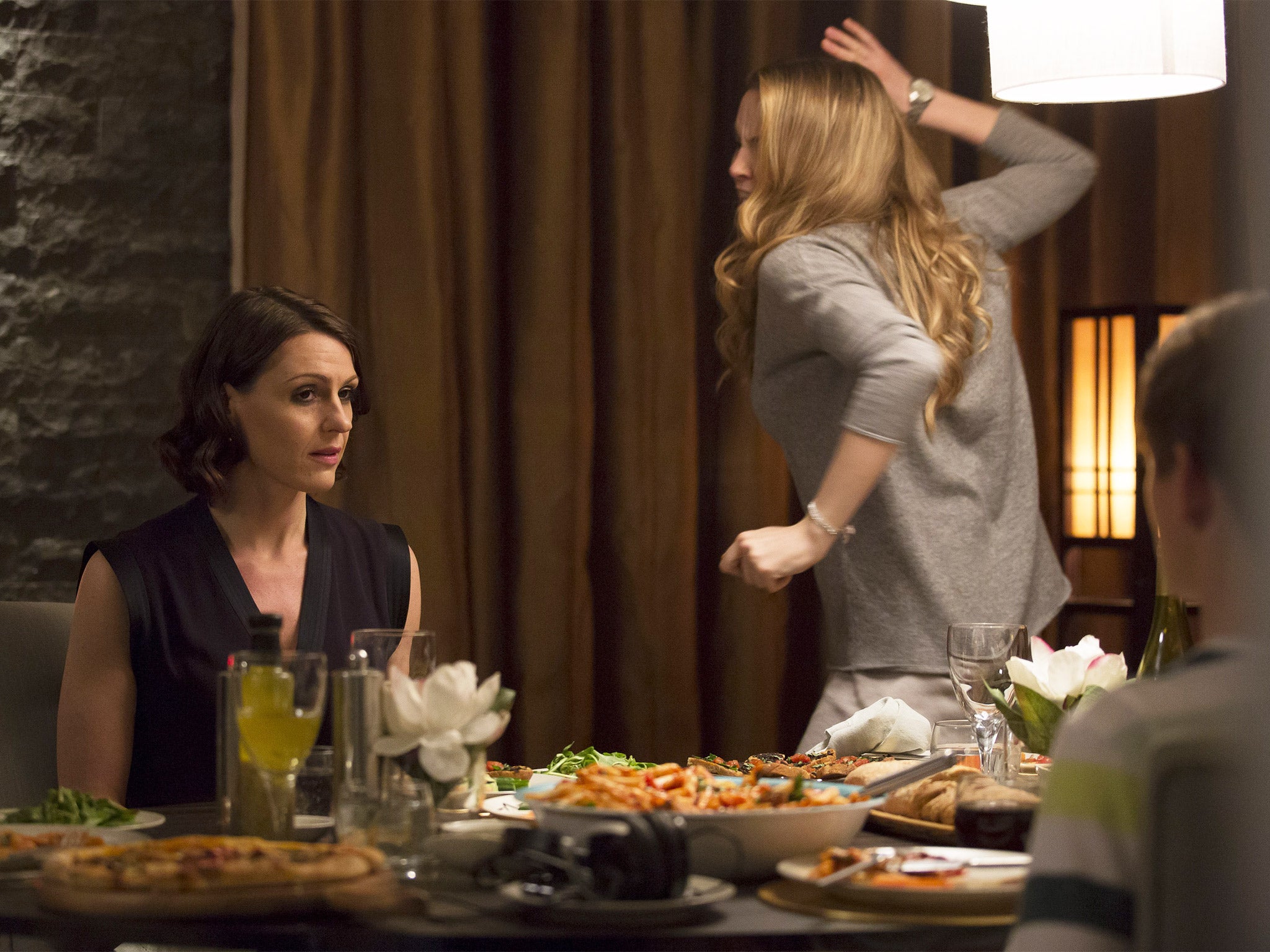
“She isn’t afraid of taking the time to investigate a problem in a play, rather than try to fix it as quickly as possible. There is a sort of detail to the work she makes.”
He claims the couple don’t take work home – “If she was an accountant I wouldn’t go home and get hold of all the accounts over supper... it’s quite nice to see each other at work,” he says. “But people are surprised when she hasn’t seen or read something I’ve done…”
Bartlett first hit our TV screens in 2012, with ITV’s menacing three-part thriller The Town, starring Sherlock and Fleabag’s Andrew Scott as a young man who returns to his hometown after the joint suicide of his parents.
It earned Bartlett a Bafta nomination for Breakthrough Talent while paving the way for more high-quality dramas that play out like Greek tragedies in modern-day suburbia, as he exploits “gutsy, raw, bloodied, visceral emotions”.
His new workplace drama Stick and Stones, which is set in Reading Business Park, is no exception. It follows hard-working businessman Thomas Benson, played by Ken Nwosu, as he starts to feel under attack and out of control when his colleagues undermine him – just as the company are laying off staff.
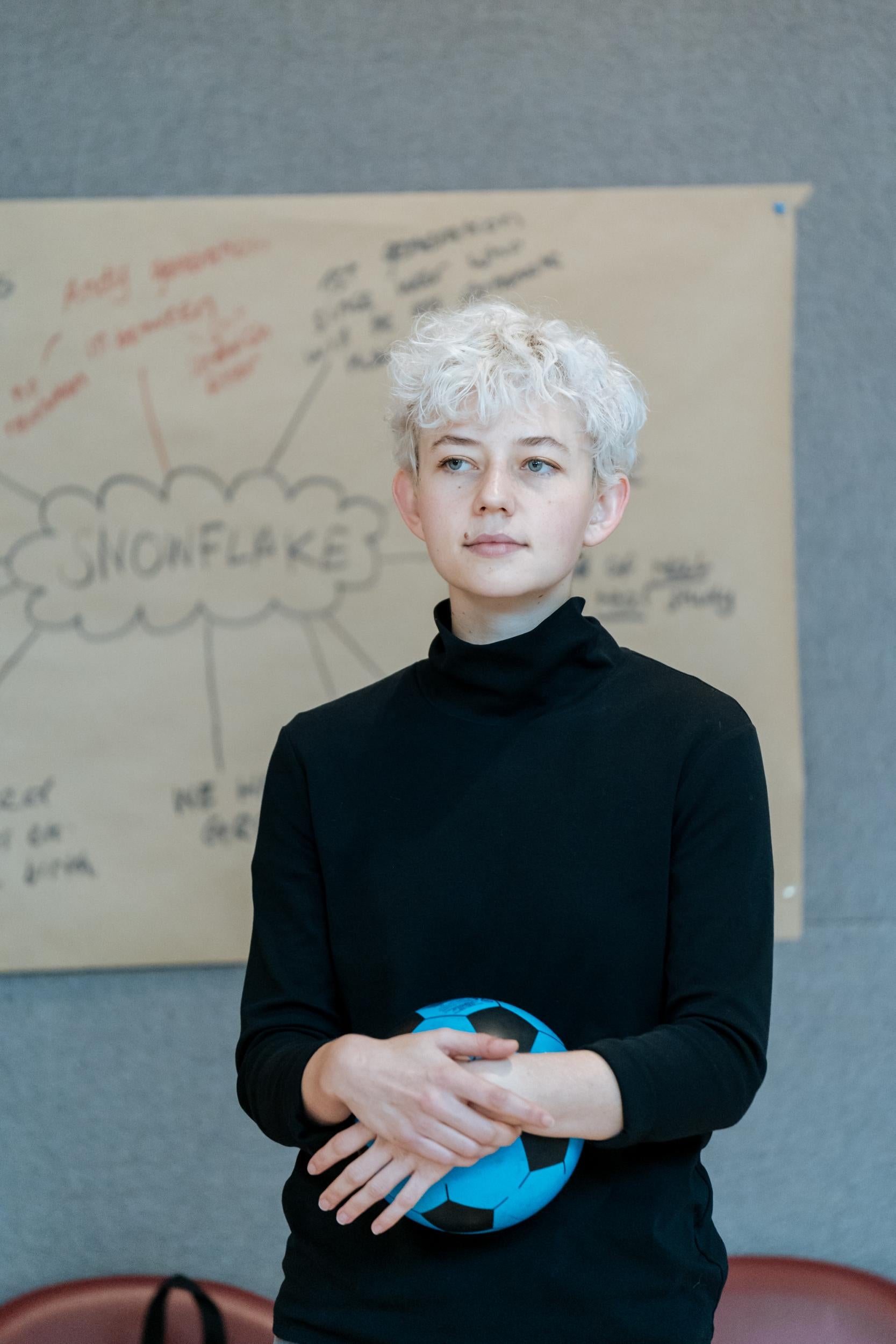
But while it is a brilliant portrait of a man driven to breaking point, with Bartlett’s undercurrent of paranoia helped along by the unhinged music, it still feels like it is riding on the back of the winning hit formula of Doctor Foster, as you start guessing whether he is being paranoid or really being pushed out.
“It’s great to find a subject with mass appeal, whether that is people having affairs or the stuff you have to deal with at work that so many of us have experienced. We all have something in us that if we are treated in the wrong way, we snap. Something in us that breaks if we are not respected, we’re bullied, or we are pushed to a point deliberately – something in all of us that becomes animalistic. And I find that fascinating,” he says.
Bartlett, 39, is from a new generation of British playwrights, which includes Lucy Prebble, Lucy Kirkwood, Jack Thorne and James Graham, among others, who have modernised theatre by putting on new plays in spaces once reserved for titans such as Shakespeare.
He grew up in Oxfordshire, the son of a psychologist and headteacher, and went to the private school Abingdon.
As he pottered around his school library drama section aged 15, he wasn’t inspired: “The contemporary plays were Harold Pinter and Noel Coward – there was nothing that spoke about the lives we were living in 1995,” he recalls.
It wasn’t until he was 16 and he saw Mark Ravenhill’s first full-length play, Shopping and Fucking, at the Oxford Playhouse, that he saw the beauty of a play about “right now”, and wanted to become a theatre director.
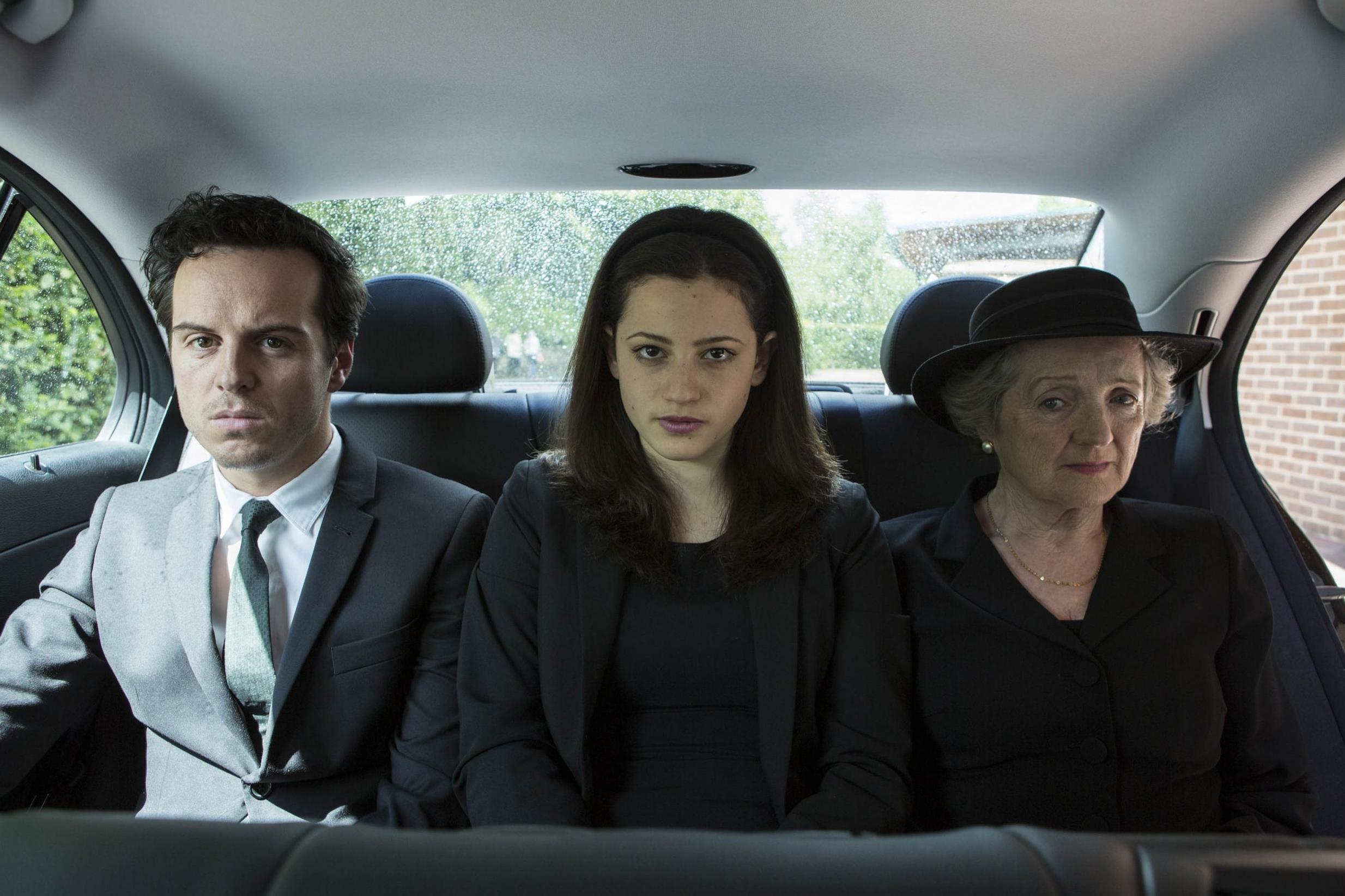
After studying English and theatre at Leeds University, he applied for jobs as an assistant director, but got nowhere, suspecting it might be because he lacked the charisma needed for the job, as well as the fact that he had no contacts.
So he decided to pick up a pen and write his first play, Not Talking, which aired on BBC radio in 2007, and was inspired by his grandfather, who was a conscientious objector.
Soon he was writer-in-residence at the Royal Court, where they snapped up his brutal play, My Child, about a dad who abducts his son when he is denied access to him, and put it on in the theatre’s downstairs space, also in 2007.
Since then, he’s had one stage hit after another: his Olivier Award-winning play Cock in 2009, about a gay man who falls in love with a woman, starred Ben Whishaw and Katherine Parkinson, and sold out at the Royal Court before it had even opened, with The Independent describing it as “smashing through identity politics”, making it more than “the bisexual classic of our era”. His hit tragicomedy about national identity, Albion, is returning to the Almeida next year following a sell-out run in 2017, with Victoria Hamilton reprising the role for which she won Best Actress at the 2018 Critics’ Circle Awards. While Love, Love, Love, an indictment of the baby boomer generation, that premiered at the Royal Court in 2010 to rave reviews, is having a revival at the Lyric next year.
After his play King Charles III transferred from the Almeida to the West End and then on to Broadway, Harvey Weinstein called him in for a meeting, saying he wanted to cast Al Pacino as Prince Charles.
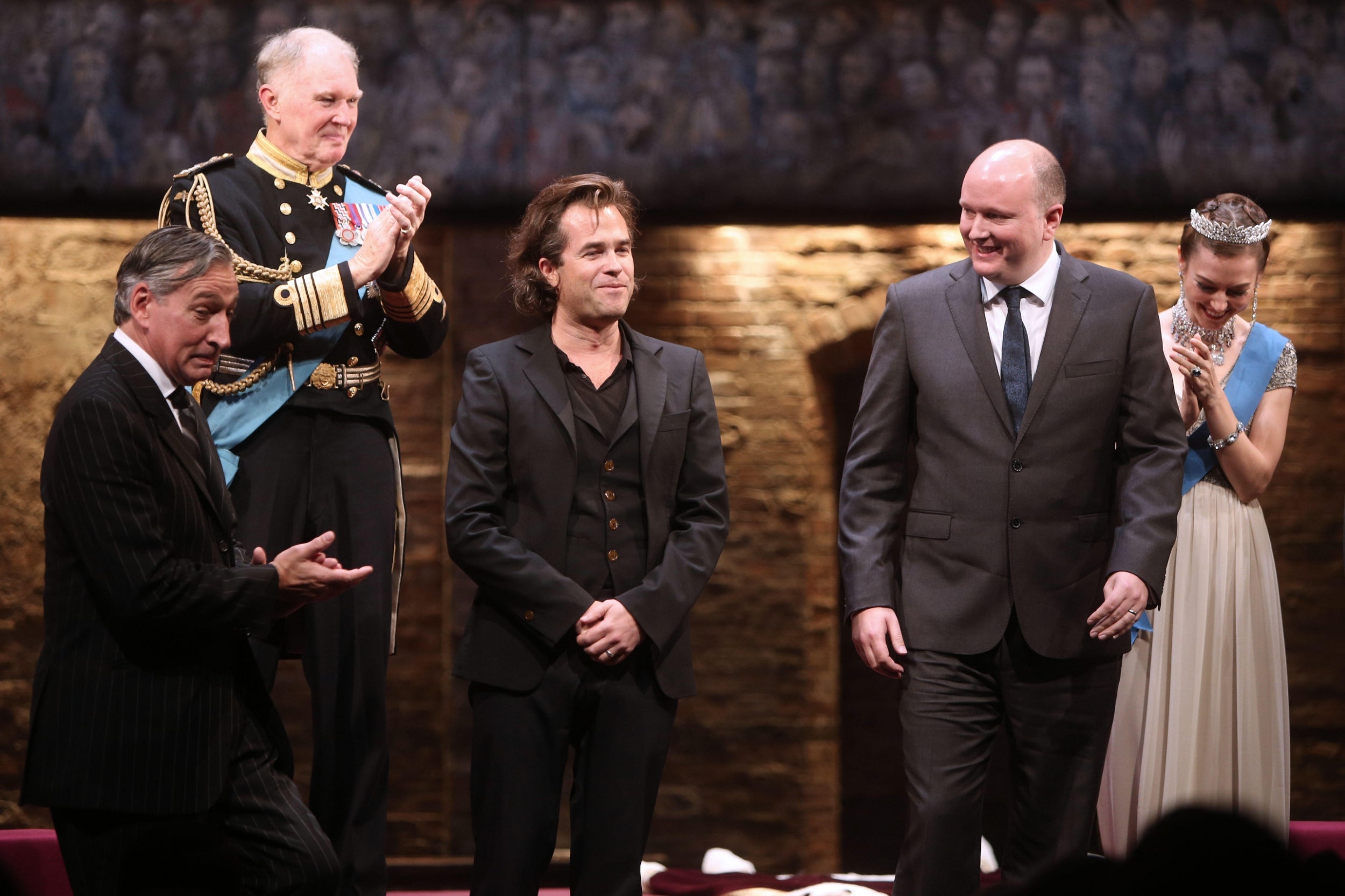
“It was like an audience with a monarch,” recalls Bartlett, who hated the whole experience, calling his wife straight after the meeting to tell her “it was horrific”. Weinstein was sitting at a large round table in a back room of a London hotel, surrounded by his entourage, when Bartlett was “put in a chair” and “this project was put in front of him”.
“I feel like I work quite hard to inevitably end up as a writer for hire,” he says. “And that’s I think all one would be. It was a no-brainer for me. It’s the opposite of how I like to work. The last place I want to be is making work for a well-known, interfering Hollywood producer.”
He took it to the BBC instead, where it was made into a critically acclaimed TV film, starring Tim Piggott-Smith as Prince Charles, which divided viewers and critics alike with its anti-monarchist portrayal of the Royal Family. “Whereas The Crown goes back into the past and you enjoy seeing things that are half-known, this was a guess at the future. But the project was to just treat Prince Charles like a Shakespearian archetype,” he says.
Bartlett who is juggling TV and theatre impressively, has no other new play on the horizon. Perhaps that is telling about the allure of TV. But, he says, a third season of Doctor Foster is “not on the cards”. “Inevitably these characters don’t just disappear out of your head. They sort of rattle around. But I have learned as a writer I can’t force it.”
He points out that writing a TV series “is two years of your life” – whereas a play is a much quicker turnaround – “I wrote the first draft of Cock in four days.”
“I still think of myself as a playwright and so the core of what I want to do is to investigate and to explore stuff. To me, those things are more important than a hit,” he says.
He’s also looking at what more he can bring from theatre to TV. What keeps him on his toes is the fact that he still “doesn’t understand” how this success has happened. “It’s surreal, but I just like writing” he says, with a baffled look on his face. “A history of writers shows you that it might not last, so I just enjoy it.”
‘Sticks and Stones’ starts on ITV on 16 Dec at 9pm; ‘Snowflake’ runs from 10 Dec to 25 Jan at the Kiln Theatre, London
Join our commenting forum
Join thought-provoking conversations, follow other Independent readers and see their replies
Comments